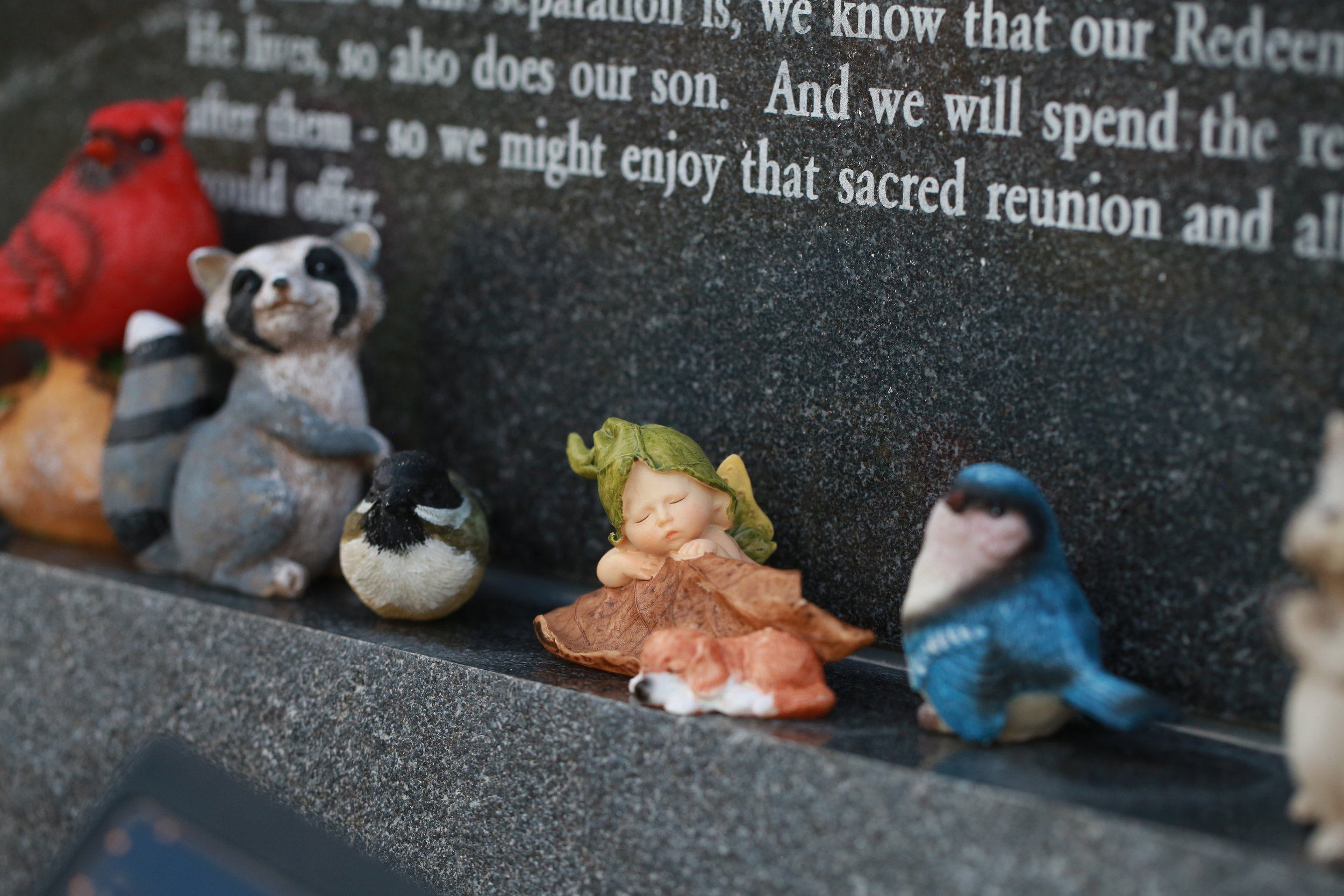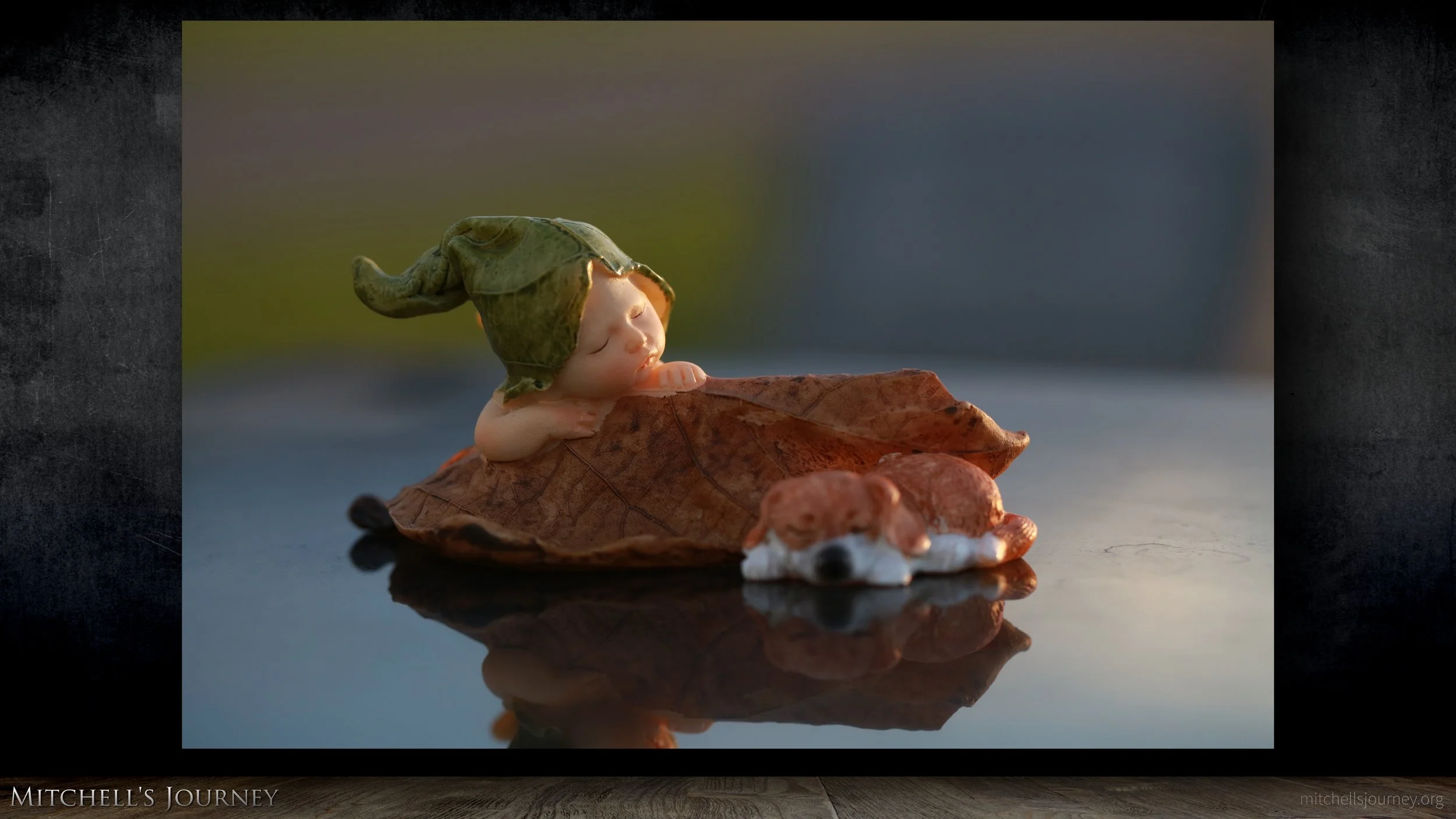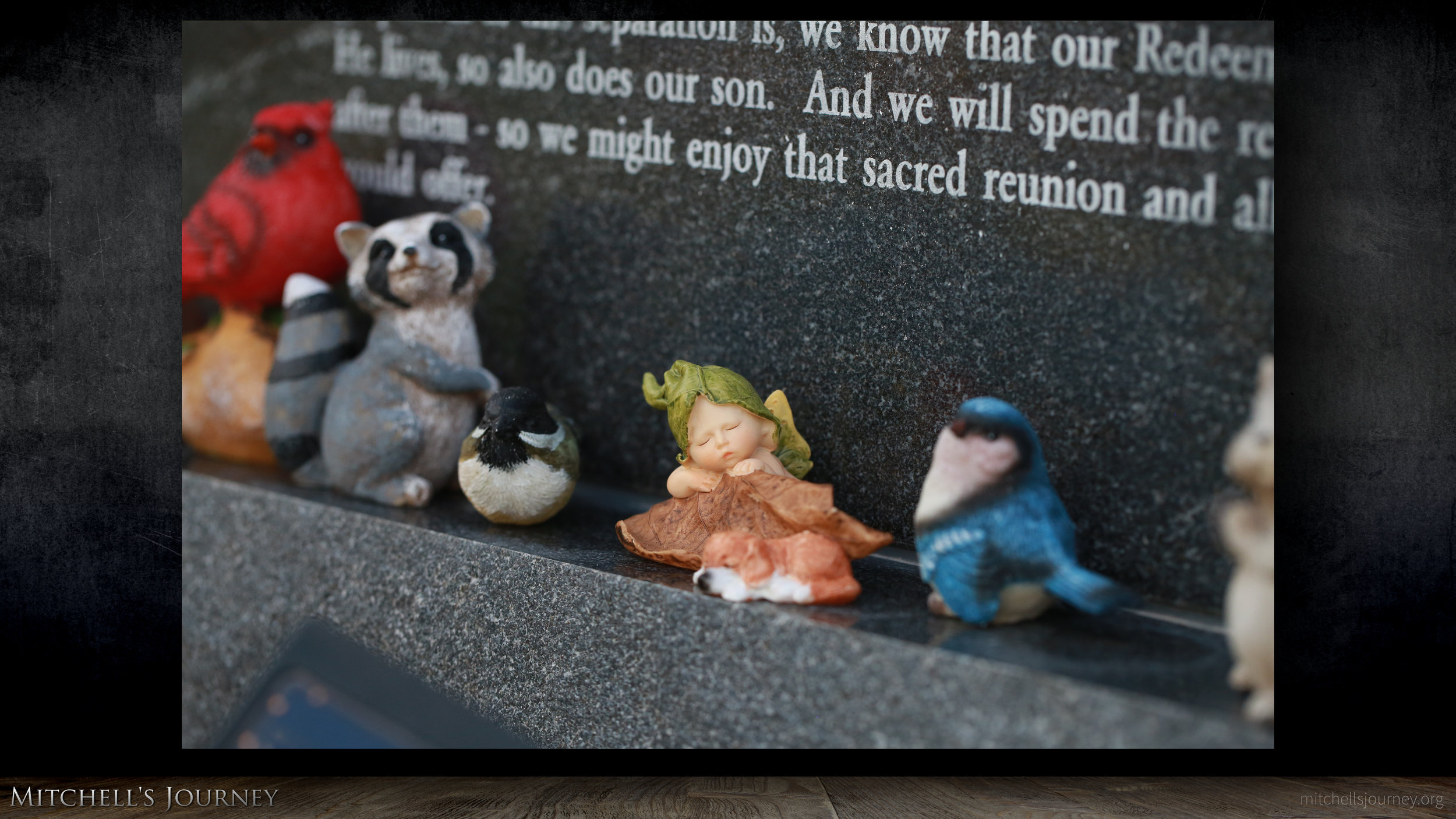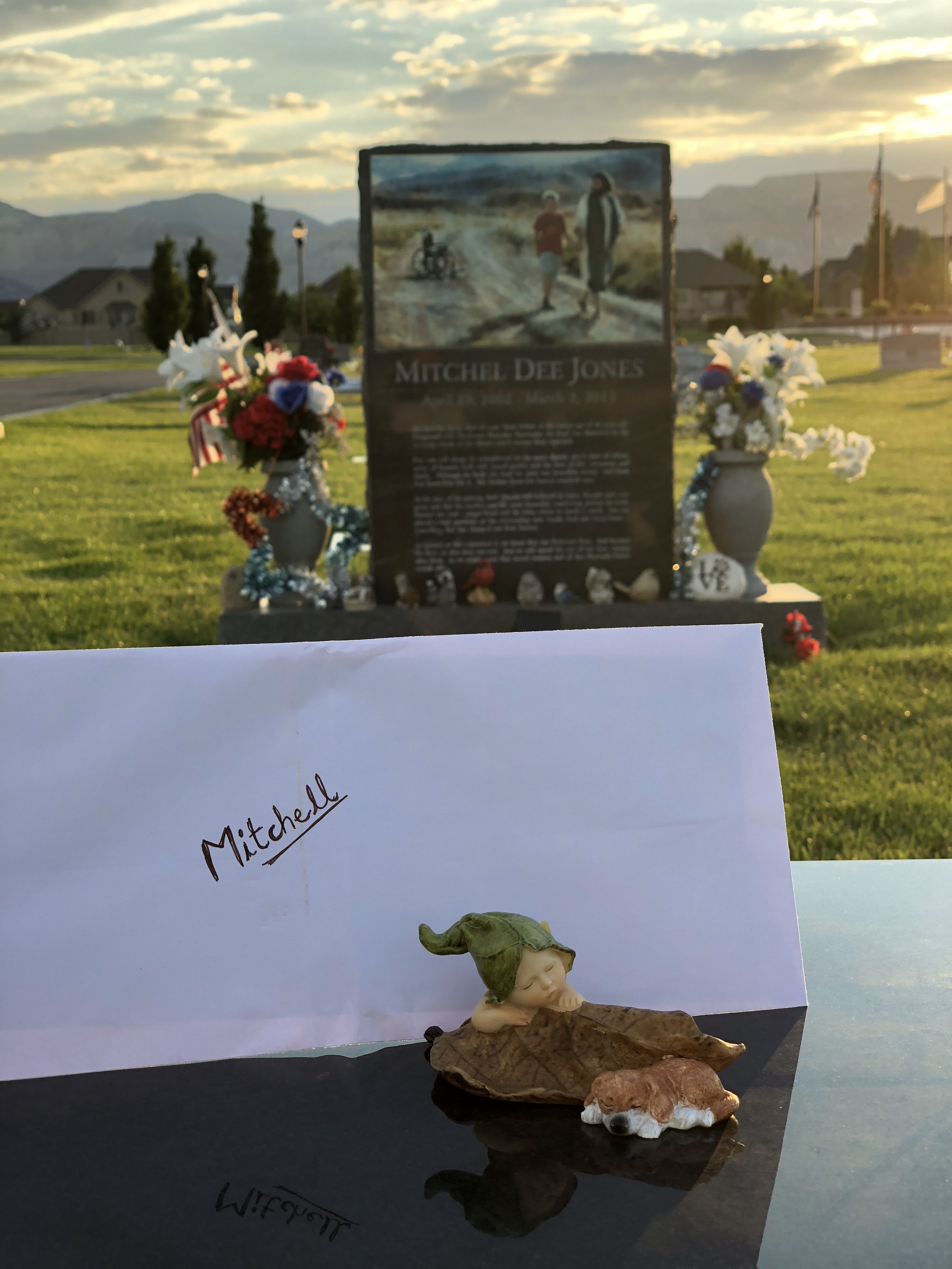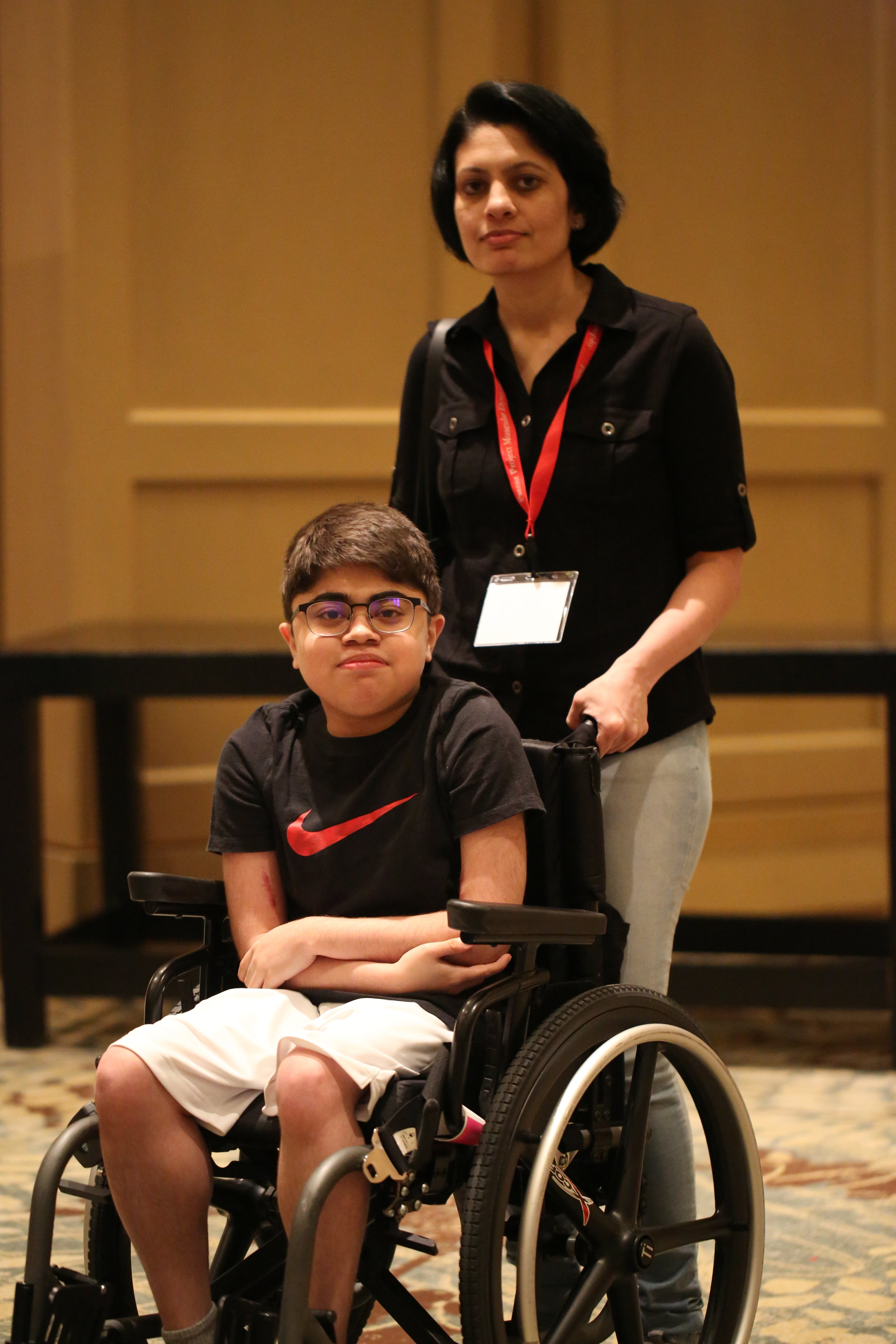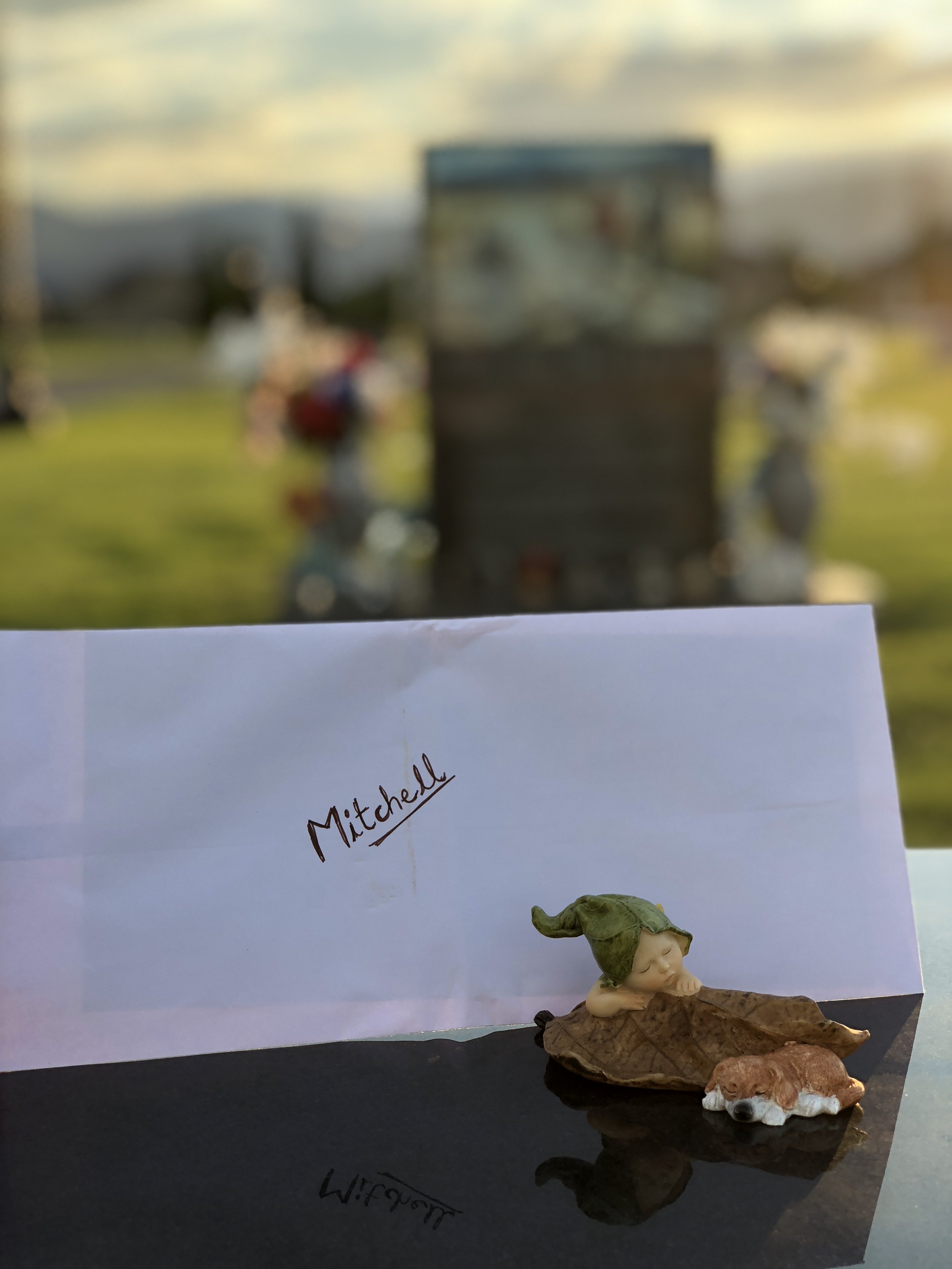Natalie reached into the back of Mitchell’s closet and said in a reverent tone, “Oh, Chris, look what I found.” As she turned around, I saw her holding a hand-painted treasure chest Mitch carefully decorated when he was eight years old. This little box bore the imaginative paint strokes of a sweet child trying his best to make something neat. I adored that box when he first painted it – and I adore it even more today.
You see, a few days ago, my wife and I walked into Mitchell’s room to finish cleaning and to put his things in storage. We staged cleaning his room into phases so we could manage our emotions. To our surprise, the first few times were lovely; we laughed and gushed over our favorite memories of Mitch. This last time, however, was different.
We sat on the floor as Natalie began to pull items out, one-by-one. It was a sacred exchange.
I pulled my phone out and started to film these tiny treasures (see next post to watch this video):
At 0:39, Natalie pulled out a few small figurines Laura-Ashley gave her little brother. Mitch treasured them because he looked up to his sister with love and admiration. She was an angel to him.
At 1:19, Natalie shows a keychain from Honduras. I gave that souvenir to Mitch when I returned from making a humanitarian documentary in that country. I was humbled to discover he put that item in his treasure chest. It touched my heart deeply.
As Natalie continued to show me things from Mitchie’s treasure chest, I started to remember the sweet little boy that once graced our home (1:24), and my heart longed to hold him in my arms.
At 2:07 –Natalie took a small glass object out of the box. This was a little gift I gave Mitch years ago while I was consulting with a mining company. In this tiny glass container were tiny flecks of gold floating in water. Mitch was convinced it was real gold. There’s a sweet story about his misunderstanding; see the essay FAMILY: A TREASURE BEYOND MEASURE
By this time, I was sobbing in silence. Grief washed over me like a tidal wave, and I could hardly breathe. Overcome with grief, I didn’t have the presence of mind to lift my phone a little to capture what Natalie was holding. My sweet wife, ever the giant, consoled me in my moment of sorrow. In so many ways, I stand in her shadow.
I share this video not to dig for attention or sympathy – but to show a tender view of what happens behind the curtains of grief. Though the years may pass, our love and longing for our little boy remains. Grief for love is the price we pay in exchange.
In my grief journey, I’ve discovered that healing begins with feeling. Yes, grief is painful – but it is necessary if I hope to heal. Running from it doesn’t help. In fact, running and hiding only makes things worse. Embracing pain and allowing it to flow through me is frightening at first, but faster to process in the end.
What was interesting about this experience is after this moment of deep grief I not only felt better, I saw things differently. It was as though my soul needed to exhale grief so I could inhale life. Ever since this moment, I’ve found myself looking for the tiny treasures my living children leave behind; the unique things they say and do; the tiny things I would notice but might be invisible to you. Those are tiny treasures I can learn to appreciate in the moment.
As painful as this moment was uncovering Mitchell’s tiny treasures, I learned that grief is not my tormentor but instead my teacher.




